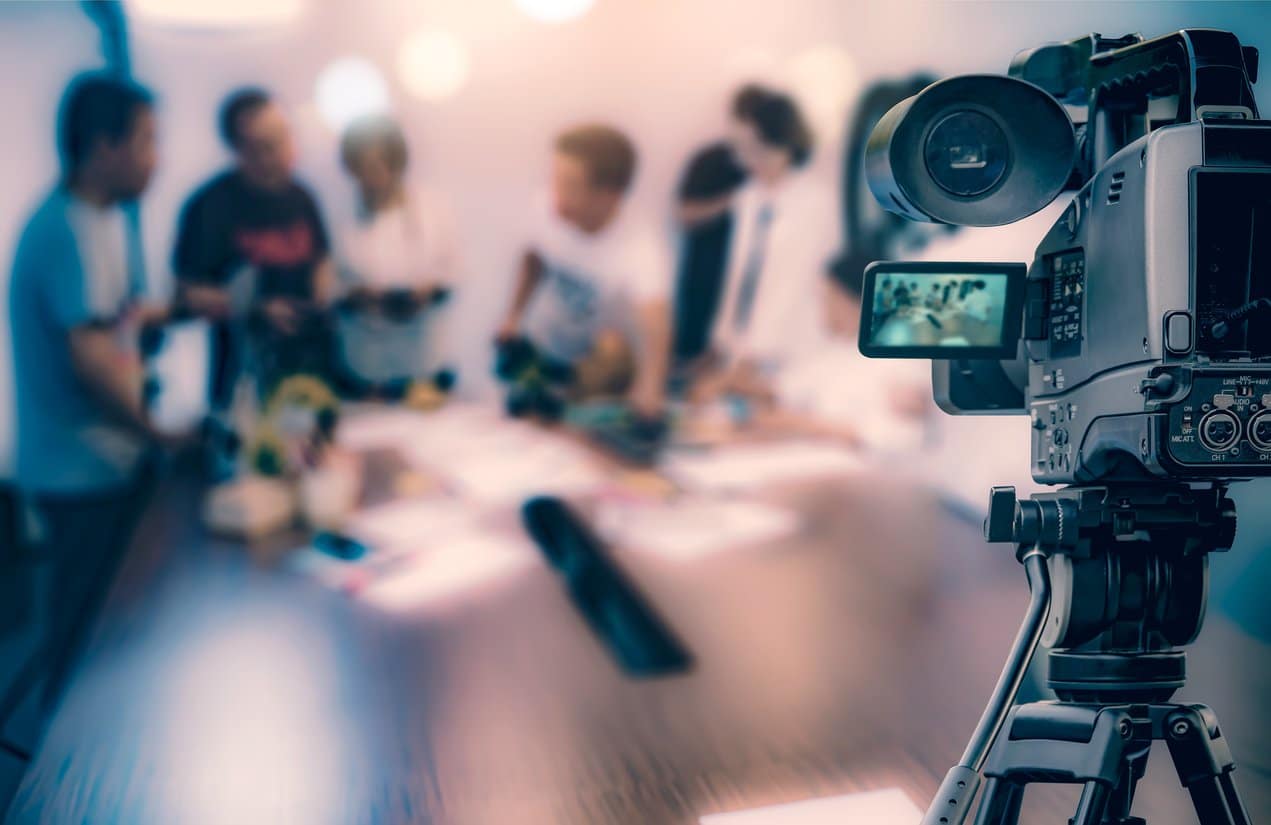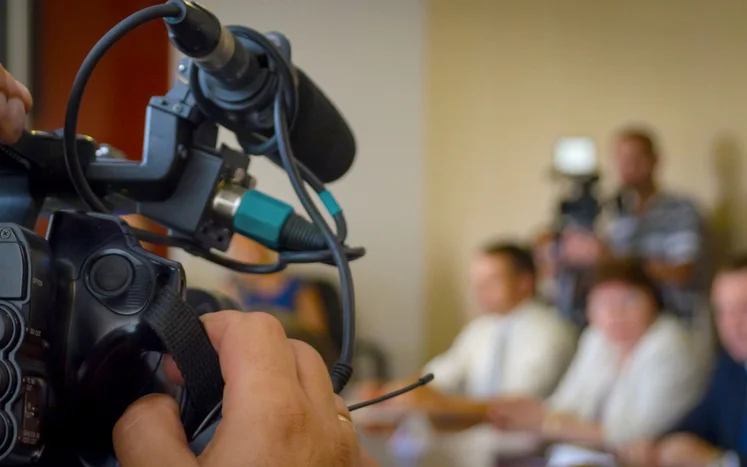Legal Videography: An Innovative Approach to Preserving Legal Testimonies
Legal Videography: An Innovative Approach to Preserving Legal Testimonies
Blog Article
Top Advantages of Utilizing Lawful Videography for Depositions and Trials
The combination of lawful videography right into depositions and tests presents a variety of compelling benefits that can dramatically impact the effectiveness of lawful process. By capturing witness testimonies in a dynamic style, legal videography not just boosts the discussion of proof but additionally boosts witness credibility through the preservation of both verbal and non-verbal cues.
Enhanced Evidence Presentation


In the world of legal process, using video clip recordings has changed the way proof exists in court. Legal videography provides a vibrant and appealing tool for showcasing vital proof, making complicated details much more obtainable to judges, juries, and various other stakeholders. Unlike traditional written records, video clip recordings catch not simply the talked words, but likewise the subtleties of body language, tone, and attitude, which can significantly influence the analysis of testaments and statements.
In addition, video evidence enables an extra engaging narrative presentation. Through visual narration, lawyers can effectively highlight essential elements of a case, directing the audience's interest to turning points. This enhanced presentation can help with a deeper understanding of the context and ramifications of the proof being reviewed.
In addition, the capacity to present proof in a multimedia layout can enhance the test procedure, lowering the moment required to convey details contrasted to extensive spoken descriptions or reviewing from records. Generally, lawful videography plays an essential function in improving evidence discussion, ensuring that the information is both impactful and understandable, inevitably helping in the quest of justice.

Improved Witness Reputation
The use of lawful videography considerably enhances the reputation of witnesses during test process. By offering an aesthetic representation of a witness's statement, lawful videography permits jurors and judges to view the witness's demeanor, confidence, and credibility. This multi-dimensional presentation can considerably affect just how the information is gotten, usually leading to a much more positive impact of the witness.
Moreover, the tape-recorded video clip captures non-verbal cues, such as body movement and faces, which can be critical in communicating truthfulness or emotional deepness. A witness that shows up made up and genuine is more probable to be perceived as trustworthy than one that is simply listened to with sound. Lawful videography likewise gets rid of the capacity for false impression that can take place with composed records, as the visual style offers context that sustains the talked word.
In addition, the durability of video clip proof strengthens the witness's account, making it a lot more tough for opposing celebrations to challenge the testimony's reliability. By integrating lawful videography right into depositions and trials, lawyers can significantly bolster the regarded honesty of their witnesses, inevitably boosting the general efficiency of their case.
Accurate Deposition Records
How can exact deposition records impact the end result of an instance? Precise deposition records play a crucial duty in lawful procedures, working as essential proof that shows the reliability and reliability of witness statements (legal videography). These records give a verbatim account of statements made during depositions, making sure that all nuances, inflections, and contexts are maintained. This precision is vital when establishing the realities of a case, as it permits attorneys to reference specific expressions or assertions made by witnesses, minimizing the threat of false impression.
In addition, lawful videography enhances the accuracy of deposition documents by capturing the aesthetic and auditory aspects of the testament. This consists of body language, tone of voice, and faces, which can give added context to the spoken words. Such extensive documents make it possible for lawyers to craft more compelling arguments, as they can easily validate cases with direct proof.
Additionally, precise deposition records can simplify the trial procedure, minimizing conflicts over what was stated and enabling a much more reliable presentation of evidence. Inevitably, the mix of written transcripts and video recordings cultivates a clearer understanding of witness statements, considerably influencing the case's outcome.
Emotional Influence On Jurors
Jurors often discover themselves affected by the psychological weight of the statements they witness throughout a test. The visual and acoustic components of legal videography improve this emotional vibration, permitting jurors to view the nuances of witness expressions, tone, and body language. These variables play a crucial role fit jurors' assumptions of reputation and dependability.
When jurors see a witness recounting a traumatic experience, the psychological gravity caught on video commonly generates empathy and involvement. This can be especially impactful in cases where the human component is central, such as injury or household law issues. The capability to attach with a witness's emotions fosters a much deeper understanding of the case, making jurors most likely to connect to the story existing.
In addition, video testaments can convey a sense of credibility browse around this site that may important site be shed in written records or audio recordings. Jurors are not just taking in details; they are also experiencing the tale, which can dramatically influence their considerations. This way, lawful videography works as an effective tool to evoke feelings, ultimately assisting jurors towards a more educated and caring judgment.
Cost-Effective Litigation Tool
Lawful videography not only improves the psychological influence of witness statements yet also works as an affordable lawsuits device. By providing a visual document of depositions and testaments, lawful videography can significantly decrease the expenses connected with traditional trial preparation and presentation.
First, it reduces the requirement for substantial witness travel and lodgings. Instead of bringing multiple witnesses to court, their recorded depositions can be played throughout the test. legal videography. This not just saves on travel expenses yet additionally permits a more structured discussion, as attorneys can concentrate on one of the most relevant testimonies
In addition, lawful videography can limit the amount of time invested in trial. By efficiently presenting witness accounts and evidence, lawyers can accelerate proceedings, which converts to reduce attorney fees and lowered court costs. The clearness and credibility of video recordings often lead to quicker court decisions, possibly reducing the trial period.
In an age where budget plans are increasingly scrutinized, using lawful videography can provide significant cost savings while boosting the overall top quality of a case discussion. Its twin benefits of cost-effectiveness and boosted communication make it an invaluable tool in modern-day lawsuits.
Conclusion
In summary, legal explanation videography significantly improves the efficiency of depositions and tests. Its ability to existing evidence adequately, improve witness reputation, and give exact records adds to a much more transparent legal procedure. The emotional resonance of video recordings involves jurors, cultivating a deeper connection to the situation narrative. The affordable nature of legal videography enhances lawsuits, inevitably supporting the pursuit of justice in a much more effective way.
Report this page